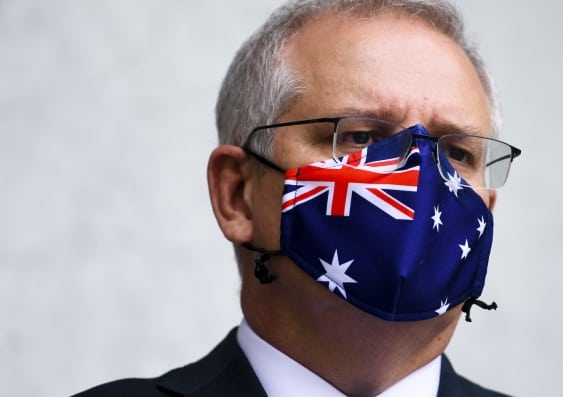A newly identified COVID-19 variant that has spread in South Africa has been described by health experts as 'the most concerning that they have seen' as it has double the number of mutations, including some with evading immune responses, as the Delta variant.
The variant 'B.1.1.529', which was assigned the Greek letter 'Omicron' on Friday, has a spike protein dramatically different to that of the original coronavirus that COVID-19 vaccines are based on, making these current vaccines less effective.
The variant which as a "very unusual constellation" of deeply concerning mutations has also been found in Botswana and Hong Kong.
"There are two approaches to what happens next: wait for more scientific evidence - or act now and row back later if it wasn't required," said Sharon Peacock, professor of public health and microbiology at the University of Cambridge.
"I believe that it is better to 'go hard, go early and go fast' and apologise if mistaken, than to take an academic view that we need to reach a tipping point in evidence before action is taken."
COVID-19 UPDATE:@UKHSA is investigating a new variant. More data is needed but we're taking precautions now.
From noon tomorrow six African countries will be added to the red list, flights will be temporarily banned, and UK travellers must quarantine.
— Sajid Javid (@sajidjavid) November 25, 2021
UK Secretary of State for Health and Social Care Sajid Javid announced that six African countries are to be added to the red list, flights will be temporarily banned and UK travellers must quarantine.
"Our scientist are deeply concerned about this variant. I'm concern, of course, that's one of the reasons we have taken this action today," said Javid.
In the United States, the Biden Administration will ban travel from seven South African nations by non-US citizens beginning Monday.
In response to these latest developments, travellers to Greece will now require a permit by the local Greek Embassy, consulates and consular representatives in order to travel to the country.
Permission to enter Greece from countries in the southern part of Africa, where the newest strain of the coronavirus has appeared including Botswana, Eswatini (former Swaziland), Lesotho, Malaui , Mozambique, Namibia, Zambia and Zimbabwe, will be restricted to Greek or other nationals carrying out essential travel.
Regardless of vaccination status, travellers will also need a molecular (PCR) test conducted within 72 hours prior to travel. Once in Greece, they will be subjected to a rapid antigen test and required to quarantine in a designated hotel for 10 days, at the conclusion of which they will be retested with a molecular (PCR) test.
Meanwhile, at a press conference on Friday, Australian Prime Minister Scott Morrison, who has recently reopened borders after they have been closed to international travellers for 600 days due to the pandemic, remains 'unconcerned'.
"I am advised that it is still under investigation and not a variant of concern, but that can change," he said advising that Australian borders shall remain open and international travellers will not be required to quarantine.
"We monitor all of these variants and we note the responses made by other countries and we consider those in real time."



